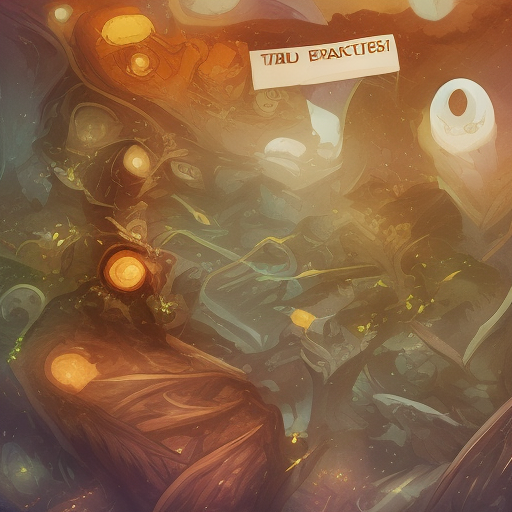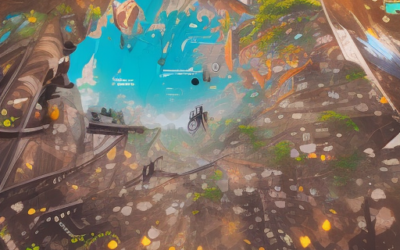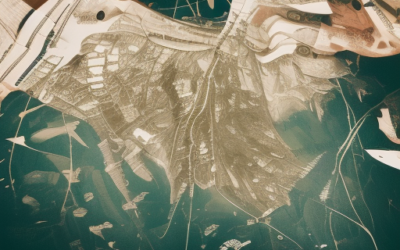Adventure Logs: A Journey Through Time and Space

1. Introduction to Adventure Logs
Adventure Logs: A Journey Through Time and Space
Welcome to the world of adventure logs! In this article, we will explore the concept of time travel and its various representations in fiction. We will delve into alternate realities, the science behind time travel, famous stories from literature and film, and how these logs can help us understand the nature of time and space. Along the way, we will also consider the ethical implications of time travel and its impact on society. So, buckle up and get ready for a journey through time and space with adventure logs!

2. The Concept of Time Travel
Time travel is a popular concept in science fiction and fantasy literature and film. It involves the ability to move through time, either forward or backward, at will. This allows characters to explore different points in history or even alternate realities where historical events have played out differently. However, the idea of time travel raises many philosophical and scientific questions, such as whether it is possible, what its consequences might be, and how it would affect our understanding of the past, present, and future. In this section, we will examine the concept of time travel and its implications for our understanding of time and space.

3. Different Types of Time Travel in Fiction
Time travel is a popular concept in fiction, with countless stories exploring the idea of traveling through time and space. In these tales, authors often employ various methods of time travel to create unique experiences for their readers. Here are some of the most common types of time travel found in fiction:
1. Direct Time Travel: This type of time travel involves a character physically moving from one point in time to another. Often, this requires the use of a device or machine, such as a time machine or a portal.
2. Indirect Time Travel: Also known as “time dilation,” indirect time travel occurs when a character experiences time at a different rate than those around them. For example, if someone were to travel at high speeds or go into deep space, they would experience time passing more slowly than those who stayed behind.
3. Alternative Time Lines: These stories explore parallel universes where events have played out differently due to small changes in the past. Characters may visit these alternate realities and interact with their counterparts, sometimes causing ripples that affect the original timeline.
4. Looped Time Travel: In looped time travel, a character becomes caught in a repeating cycle of events, typically experiencing the same moments over and over again. This can lead to interesting explorations of free will and the nature of existence.
5. Retroactive Time Travel: Unlike traditional time travel, which involves movement through time, retroactive time travel allows characters to change events that have already occurred. This can result in paradoxes and fascinating explorations of causality.
These are just a few examples of the many ways authors have used time travel in their works. Each type offers its own unique opportunities for storytelling and provides readers with exciting adventures through the ages.

4. Exploring Alternate Realities
Exploring alternate realities is one of the most exciting aspects of time travel. When we travel through time, we not only experience different moments in history, but we also get to explore parallel universes where things have played out differently. These alternate realities offer a glimpse into what might have been and allow us to see how small changes can lead to vastly different outcomes. In literature and film, we often see characters using time travel as a way to explore these alternate realities and learn from them. For example, in “The Terminator” series, the protagonist uses time travel to visit different versions of the future and try to change the course of events. In “Back to the Future,” the main character uses time travel to explore different versions of his own life. By doing so, he learns valuable lessons about the importance of family and personal responsibility. Exploring alternate realities can also be a way to escape from our own reality and find solace in a world where things are different. It allows us to explore new possibilities and imagine what our lives could be like if we made different choices. However, it’s important to remember that these alternate realities are just that – they are not our reality. They are a product of our imagination and should be treated as such.

5. The Science Behind Time Travel
Time travel has long been a topic of fascination in science fiction, but what is the science behind it? Is it possible to travel through time using current technology or will we need to wait for advancements in the future? In this section, we will explore the scientific concepts that underpin time travel and examine the theories that have been proposed to explain how it might be possible. From the grandfather paradox to the concept of closed timelike curves, we will delve into the complex world of time travel physics and see how it compares to our understanding of space and the universe. Whether you are a scientist, a fan of science fiction, or simply curious about the mysteries of the universe, this section will provide insights into the science behind one of the most intriguing and enduring themes in human storytelling.

6. Famous Time Travel Stories in Literature and Film
Time travel has been a popular theme in literature and film for centuries, with countless stories exploring the concept of traveling through time and space. From H.G. Wells’ groundbreaking novel “The Time Machine” to the recent hit film “Back to the Future,” time travel has captivated audiences around the world. In this section, we will explore some of the most famous time travel stories in literature and film, examining their themes, characters, and impact on popular culture.

7. How Adventure Logs Can Help Us Understand Time and Space
Adventure logs can provide us with a unique perspective on time and space, allowing us to explore concepts that are often difficult to comprehend. By immersing ourselves in fictional worlds where time travel is possible, we can gain insights into how different cultures and societies view these concepts. For example, some stories may portray time as being fluid and malleable, while others may present it as a rigid and unchanging force. Similarly, adventure logs can help us understand the relationship between space and time, and how they intersect and influence each other. By examining the ways in which authors use time and space in their stories, we can gain a deeper understanding of these fundamental aspects of our universe. Additionally, adventure logs can inspire us to think critically about our own perceptions of time and space, and how they shape our experiences and perspectives. Overall, adventure logs offer a valuable tool for exploring and understanding the mysteries of time and space.

8. The Ethics of Time Travel
The concept of time travel raises complex ethical questions that have been explored in various forms of media. From the potential consequences of altering history to the responsibility of preserving timelines, time travel has become a subject of intense debate among philosophers, scientists, and writers alike. In this section, we will delve into the ethical considerations surrounding time travel and its implications for humanity.

9. The Impact of Time Travel on Society
Time travel has long been a popular concept in fiction, and its impact on society can be both fascinating and complex. From changing the course of history to altering personal relationships, time travel has the potential to greatly influence the way we live our lives. In this section, we will explore some of the ways in which time travel has affected society, both positively and negatively.

10. Conclusion: The Enduring Appeal of Adventure Logs
Adventure Logs have been a staple of fiction for centuries, captivating readers with their tales of heroes and villains, battles and quests, and journeys through time and space. From the ancient epics of Gilgamesh and Odysseus to the modern masterpieces of Tolkien and George R.R. Martin, these stories have endured because they speak to something deep within us – the desire to explore new worlds, to challenge ourselves, and to discover what lies beyond the horizon.
At their core, Adventure Logs are about pushing the boundaries of what is possible, whether it be through physical prowess, mental acuity, or sheer determination. They remind us that we are capable of so much more than we ever dared to imagine, and that the universe is full of wonder and mystery waiting to be discovered.
But Adventure Logs are not just entertainment; they are also a means of exploring complex philosophical and scientific concepts. By delving into the realm of time travel and alternate realities, these stories force us to confront our own beliefs about the nature of reality and the limits of human knowledge.
In conclusion, the enduring appeal of Adventure Logs lies in their ability to transport us to distant lands and times, to challenge us to be better versions of ourselves, and to expand our understanding of the universe. So whether you prefer your adventures in print or on the silver screen, remember to cherish these timeless stories and the lessons they impart.




